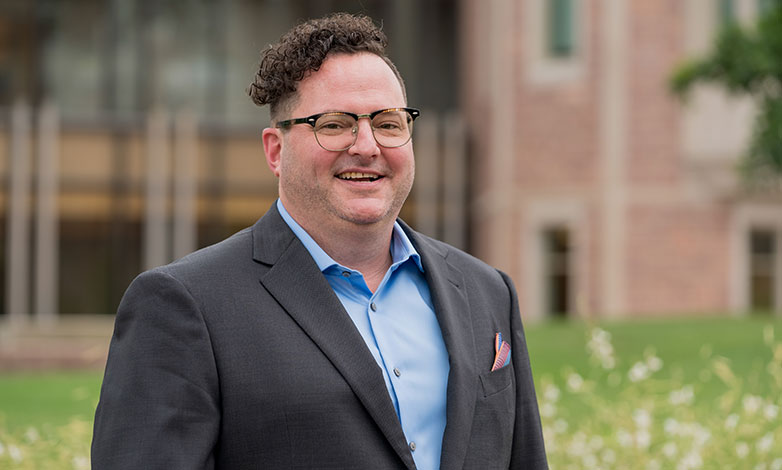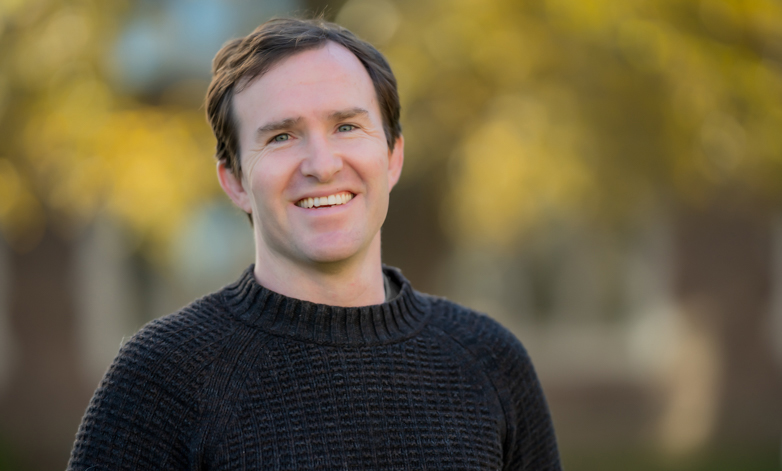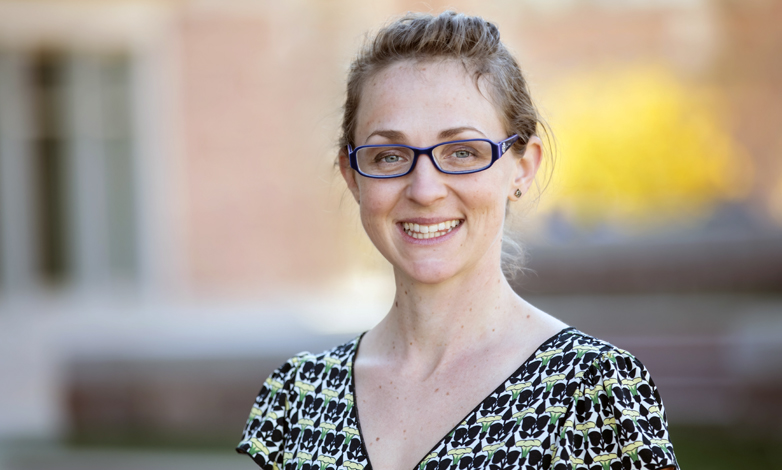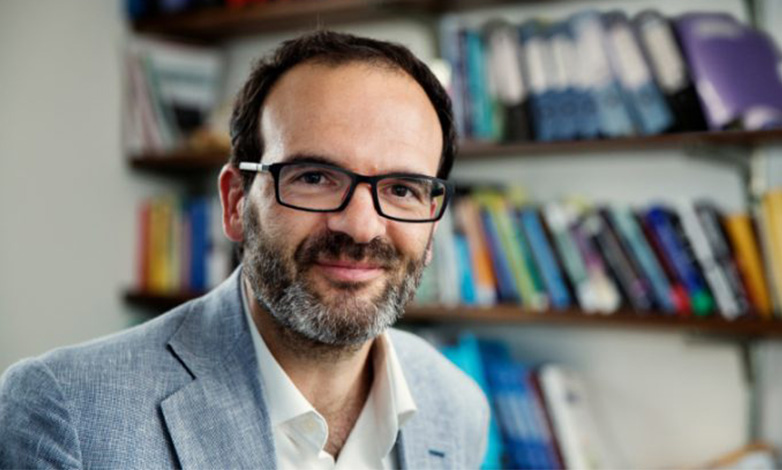Systems Science for Health Equity PhD Concentration
Brown School PhD students typically develop an individualized research area through coursework and mentored training opportunities. As part of this individualized approach, Brown School PhD students have the option of choosing to complete one of our doctoral concentrations. The Systems Science for Health Equity (SS4HE) doctoral concentration provides an opportunity for students interested in the transdisciplinary field of systems science to complete relevant coursework and mentored research. The concentration aims to prepare next-generation public health and social work scholars in complex systems thinking and methods through the following SS4HE competencies:
- Understand how organizational, community, and healthcare systems contribute to public health as complex systems.
- Apply core systems science principles, such as complexity, feedback, emergence dynamics, evolution, endogeneity, social structures, and interactivity to public health research and intervention design.
- Describe how systems thinking and systems science methods contribute to core research activities of description, prediction, explanation, and causal inference.
- Design studies incorporating systems science tools, such as agent-based modeling, systems dynamics modeling, network analysis, group model building, etc.
- Engage diverse partners in systems science research to ensure equitable public health processes and outcomes.
PhD students concentrate in SS4HE by completing SS4HE-related coursework, getting involved in the various SS4HE research training opportunities at Washington University, and conducting mentored dissertation research that contributes to the field.

Systems science is the study of complex systems. The theories and methods of systems science are applied in almost every discipline, including genetics, biology, engineering, sociology, political science, social work, public health, and more. In the past few years, systems science and analysis have developed rapidly as an interdisciplinary approach to exploring and solving important scientific problems. The Systems Science for Health Equity PhD concentration is uniquely positioned to build capacity in systems science through a public health and social work lens. It builds on Washington University’s extensive experience in training researchers in systems thinking and methods, conducting systems science research, and building strategic partnerships with other researchers and partners to further systems science. It offers a unique opportunity for doctoral students to engage in and embed transdisciplinary work in complex systems thinking and methods within their Public Health Science or Social Work PhD program.
Concentration Requirements
Coursework: Students complete concentration coursework with other PhD requirements in their first two years of the program. Concentrators complete at least three SS4HE doctoral courses from the options presented below. Concentrators also have the option of creating an Independent Study to replace one of the required courses below, allowing individualized systems science study beyond the content of the courses available.
| Concentrators select at least three (3) courses (9 credits) from the following SS4HE options: | ||
| S90 5660 | Systems Thinking in Health | 3 |
| S90 5050 | Community-Based System Dynamics | 3 |
| S90 6915 | Introduction to Agent-Based Modeling | 3 |
| S90 5010 | Social Network Analysis | 3 |
| S90 5661 | System Dynamics Simulation for Strategic Design | 3 |
| SS4HE concentrators successfully propose and complete systems science-related doctoral research and dissertation | ||
*Students can petition to complete course requirements through independent studies focused on additional areas in systems science.
SS4HE Training Opportunities: Concentrators are encouraged to participate in the various systems science training opportunities offered across the university, such as the quarterly meetings of the Systems Science Interest Group (SSIG), the annual Systems Sciences for Social Impact (SSSI) Summer Training Institute, and mentored research opportunities through the various funded transdisciplinary research centers using complex systems approaches, such as the Center for Public Health Systems Science, Center on Social Dynamics and Policy, Social System Design Lab, Center for Mental Health Services Research, Center for Advancing Health Services, Policy, and Economic Research, etc.
Mentored Systems Science Dissertation Research: Concentrators identify faculty mentors whose scholarship involved systems science. Typically, these faculty will supervise the completion of an Area Statement & Qualifying Exam. After finishing SS4HE and other required doctoral coursework and milestones, students conduct dissertation research in systems science under the mentorship of faculty working in the area.
Process: Students interested in the concentration work with their faculty advisor, the SS4HE Lead Faculty, and their Program Director to ensure interest alignment. The student and faculty develop and execute research that culminates in a dissertation that contributes to the systems science literature. The successful defense of the SS4HE dissertation is recorded in the student’s final academic transcript.
A team of faculty across Schools coordinates to support SS4HE concentrators.
Dr. Ross Hammond, Distinguished Professor in Public Health System Science, serves as the Concentration Lead. Feel free to reach out with questions and suggestions. Other instructional faculty include:

Ellis Ballard, MSW/MPH
Assistant Professor of Practice
- Phone: 314-935-3072
- Email: eballard@wustl.edu

Todd Combs, PhD
Research Assistant Professor
- Phone: 314-935-3731
- Email: toddcombs@wustl.edu

Patrick Fowler, PhD
Professor
Director, Doctoral Program in Public Health Sciences
- Phone: 314-935-5859
- Email: pjfowler@wustl.edu

Ross Hammond, PhD
Distinguished Professor in Public Health System Science
- Phone: 314-935-2223
- Email: rhammond@wustl.edu

Douglas Luke, PhD
Distinguished Professor in Public Health Systems Science
- Phone: 314-935-3704
- Email: dluke@wustl.edu

Sara M. Malone, PhD
Assistant Professor of Surgery
- Phone: 314-362-0237
- Email: sara.malone@wustl.edu

Virginia Mckay (Ginger), PhD
Assistant Professor
- Phone: 314-935-5740
- Email: virginia.mckay@wustl.edu

Emmanuel Tetteh
Research Assistant Professor
- Phone: 314-362-2271
- Email: emmanuel.tetteh@wustl.edu

Jean-Francois Trani, PhD
Associate Professor
- Phone: 314-935-9277
- Email:jtrani@wustl.edu